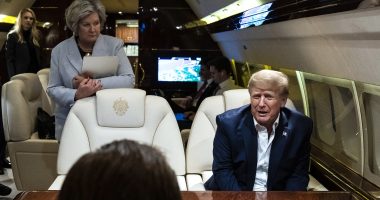
Global trade flows will continue their rapid rebound from the pandemic this year and next, with Asia seeing the strongest gains in exports, and Africa losing out, the World Trade Organization said.
The Geneva-based body’s new forecasts Monday underline the unequal nature of Covid-19’s economic impact, with poorer countries set to suffer the weakest trade recovery, partly because they lack access to vaccines.
The WTO expects that Asia’s exports of goods will be 18.8% higher by the end of 2022 than two years earlier, while Africa’s exports are set to rise by just 1.9%. The trade dispute body expects North American exports to be up 8%, and European exports to be 7.8% higher.
“The trade recovery is strong but unequal,” said Ngozi Okonjo-Iweala, the WTO’s director general. “Poorer regions with mostly unvaccinated populations are lagging behind.”
Exports and imports of goods collapsed in the early months of the pandemic as lockdowns closed factories and transport networks across the globe. Trade flows started to rebound from the middle of 2020 and returned to their pre-pandemic level by the end of that year.
Asia supplied many of the goods that households and businesses needed to navigate the pandemic, including personal-protection equipment, laptops and bicycles. As a result, the continent that includes factory powerhouses such as China and South Korea has led the trade rebound. By the end of this year, the WTO estimates that Asian exports will already be 14.7% higher than at the end of 2019, while exports from North America—which is dominated by the U.S.—will still be slightly down on pre-pandemic levels.
Other economists also expect the trade surge to continue in parts of Asia beyond next year, driven by an ample supply of low-wage workers. HSBC, a U.K. bank historically focused on Asian trade, expects Vietnam to record annual average exports growth of 13% between this year and 2026, not accounting for price rises. It sees Bangladesh close behind at 12.9% and Sri Lanka at 10.1%. The bank expects China’s trade growth to be much lower, at 5.6% annually, putting it roughly in line with the U.S. and Europe.
Despite the suddenness of the collapse in world trade in early 2020, and the strength of its subsequent rebound, the WTO doesn’t see the pandemic having long-term implications for the role that exports and imports play in the global economy.
At the 1990s’ high point of the globalization process, when businesses around the world split production between an increasing number of countries, trade volumes grew at twice the rate of world economic output. The WTO expects that ratio between trade volumes and global gross domestic output to be matched this year, but that trade will grow at roughly the same rate as the global economy from 2022, returning to the pace common since the global financial crisis.
While the pandemic may not see a step up in globalization, neither do economists think it marks a setback. Some economists and policy makers had expected the disruptions caused by the pandemic to push some companies to shorten supply chains or bring production back home.
“This pandemic has highlighted just how interconnected and interdependent we really are,” said Shanella Rajanayagam, an economist at HSBC. “Supply chains are just so complex and there are some components that only certain countries or certain producers make.”
The WTO said it expects bottlenecks in the global freight network to ease over coming months, citing the expected availability of new containers that were ordered by shipping companies earlier this year.
“My guess is that we will start to see a return to something more normal over the next few months, as we enter 2022,” said Robert Koopman, the WTO’s chief economist.
Instead of lingering bottlenecks, the WTO sees the emergence of new variants of Covid-19 as the main threat to its forecast strong recovery in trade flows.
Write to Paul Hannon at [email protected]
Copyright ©2021 Dow Jones & Company, Inc. All Rights Reserved. 87990cbe856818d5eddac44c7b1cdeb8









